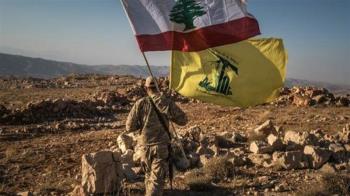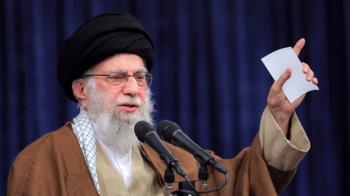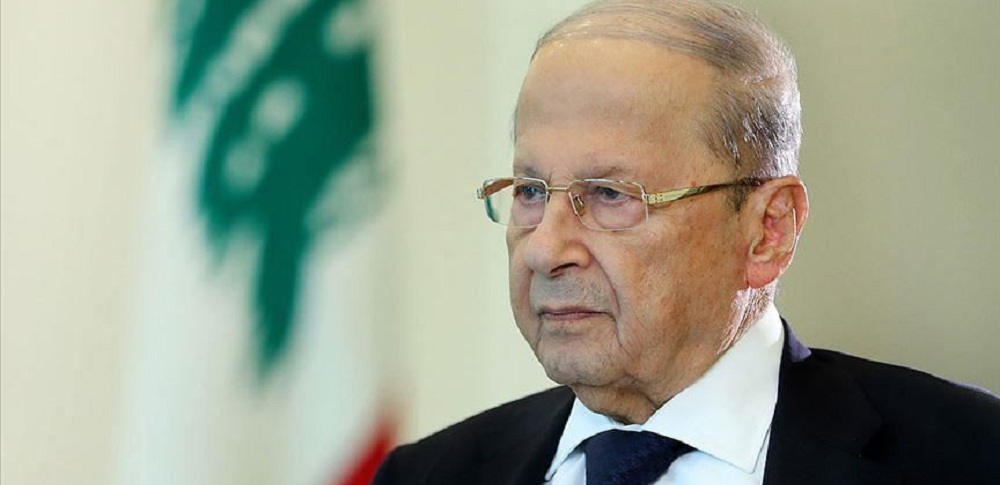Alwaght- These days, Lebanon is living an atmosphere of taking the final steps to an agreement over demarcation of the disputed sea borders with the Israeli regime as people are optimistic to see economic improvement by producing and selling gas from the contested energy area. In the middle of this atmosphere, the Lebanese lawmakers gathered to discuss election of a new president. The session was held with the presence of 122 out of 128 lawmakers, with 66 of them casting their blank ballots to show that the difference is still too much to allow election of a new president and this trend will continue for some time.
Indeed, few people or, even it can be claimed, no one expected the name of Michel Aoun's successor to be announced at that meeting because in the May elections no party could get the majority required to grant it the power to elect the president and the coalition is the only way out of this political stage to prevent the recurrence of political vacuum.
In fact, the deep differences between lawmakers and parliamentary factions have raised concerns that Lebanon will be left without a president after Aoun's term expires at the end of October— an issue not new to the Lebanese.
The caretaker Prime Minister Najib Mikati has so far declined to present a new cabinet since his composition of ministers was not approved by Aoun. Therefore, odds are that with the expiration of Aoun's term by October's end, the Lebanese political twist goes labyrinthine.
Although Mikati in recent days assured that his new cabinet will be formed before the end of Aoun's presidency, the speaker of the parliament, Nabih Berri, stated that he will convene the new parliament session "when the representatives agree on the next president"— a process that can take months in a country where constitutional deadlines are routinely flouted.
This dim outlook coincides with the pressures on Lebanon by the International Monetary Fund (IMF) for required reforms to pave the way for reception of country's loans before Aoun term ends.
Over the last two years, Lebanon's national currency, lira, lost 95 percent of its value, forcing up the food prices 2000 percent and the poverty rate more that 80 percent.
As part of efforts to check the negative impacts of the political disputes on the economic situation, on Monday, the lawmakers sought to approve 2022 budget arrears.
The budget segment determined the currency rate for the customs revenues 15,000 liras for a US dollar— less than half of the free market rate, which is contrary to the IMF demand for equalizing the currency rates in the country.
Scales tiled towards Hezbollah favor
Unlike most countries with a parliamentary system, the post of president in Lebanon is not ceremonial and plays an active role in the politics, because it has considerable powers before, during, and after the formation of the government.
Hezbollah and its allies are yet to name their candidate for the president, though it was thought earlier that Gibran Bassil, Aoun's son-in-law and head of the Free Patriotic Movement (FPM), would be Hezbollah's main choice. With objections to Bassil's presidency by rival parties, especially the Samir Geagea-led Lebanese Forces, and also because of the US sanctions on him, political observers suggest that another option for Hezbollah is Suleiman Frangieh, the grandson of former Lebanese president with the same name.
On the other side, the Lebanese Forces along with their allies named Michel Moawad, a Maronite politician from the north, instead of Geagea himself but their choice gained only 36 favorable votes.
In the third layer of Lebanese politics, the lawmakers who affiliate with the 2019 protest movement voted to other choices.
These figures are significant because according to the Lebanon's presidential election law, with the failure of the members of parliament to elect a president in the first session with the vote of at least two-thirds of them, in the next sessions the quorum will decrease to 65 votes though the presence of 86 lawmakers is required for the voting.
This situation apparently gives Hezbollah a leg up as the resistance movement along with its allies has the majority in the parliament.
The scenarios ahead
In case of continuation of the political differences among the political forces, two scenarios about the presidency and its duties are likelier than others.
The first one is stay of Aoun in his position. In a state of vacuum caused by lack of an official government, Aoun will not leave because the caretaker government cannot undertake the presidential duties.
The Lebanese constitution stipulates that a state employee can run for president only if two years have gone since he retired. However, experience has shown that the doors are open to modifying the interpretations for this part of the constitution, as when Aoun was elected in 2018, this part was not applied to him.
The second scenario is that with the formation of an official government, it is possible for the cabinet to undertake the presidential duties until a president is elected. In 2016, when it took 2 years and 46 sessions for the parliament to elect Aoun, a substantial vacuum emerged but the government did the president's job.



























